Outsiders' Perspectives of the Big Easy, Bourbon Street, and Beyond…
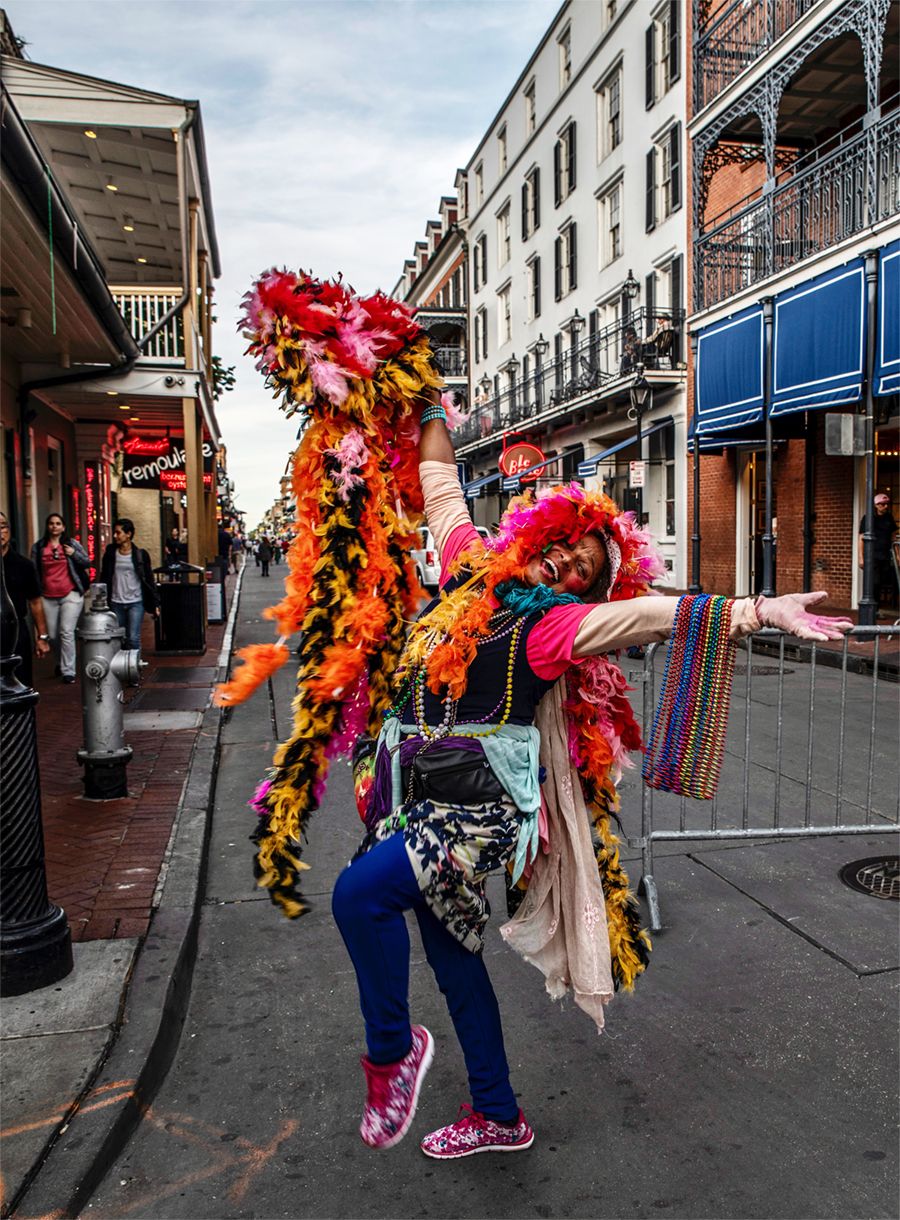
New Orleans is a city with a reputation: fun-loving, friendly, maybe a little crazy, and definitely slightly boozy. Our weather is as hot and humid as our gumbo—and about as inconsistent as our pothole-battered streets. We're known for our food, our jazz, our cocktails, Mardi Gras, and Bourbon Street. And we're known for our tourists.
Before the pandemic, New Orleans was one of the most popular tourist destinations in the country, with some 18.5 million people coming to town every year. But what is it that appeals to visitors so much? And what exactly do they expect to find when they get here? Everyone tends to come to New Orleans for a very specific reason, and most show up with expectations—whether it's the alcohol or the architecture, the music or the muffalettas, non-New Orleanians usually have a preconceived idea of what's in store for them as they land at MSY or meander into the French Quarter. They might not know what a shotgun double is, how to peel a crawfish, or how to spell Tchoupitoulas, but they know what New Orleans has to offer. Or, at least, they think that they do.
And as things continue to reopen around town, Bourbon Street is filled once again with tourists carrying fishbowls full of fruity cocktails, singing karaoke, and taking pictures of silver-painted street performers. We talked to several outsiders about what they feel New Orleans is all about—some have been here to experience it firsthand, and others got their impressions from outside sources of varying reliability.
Here is what New Orleans looks like to those who don't live here. The accuracy of their observations is left up to you to decide.
We really like to party!
New Orleans is known for its party-centric atmosphere. The outside world sees us as a group of heavy-drinking, hard-partying, merry-making sorts.
"Definitely drunks," Alysse Parris from Chattanooga, Tennessee, said. "With spicy foods," she added.
Anna Hill, who grew up in Huntsville, Alabama, admits that the first time she came to New Orleans, she found the city a little shocking.
"I grew up pretty sheltered, so I was mystified by all the walk-up booze places, the Red Dress Run, and how loud the streets were, even on weeknights," Hill said. "I couldn't believe that they sell hard liquor at the Walmart there!" Christina Cannon of Calhoun, Georgia, added. "I was like, 'I want a Smartwater,' and they said, 'No, you don't; you want alcohol.'"
But while some might be quick to judge us for our go-cup-toting ways, they're also quick to join in on the fun while they're visiting. So many out-of-towners look at their time in New Orleans as an excuse to cut loose and overindulge—to step away from reality and do what they might not dare to do (or overdo) when leading their ordinary lives. Unfortunately, many tourists tend to go to extremes, which is why, pre-COVID, Bourbon Street was so often littered with empty Huge Ass Beer cups and regurgitated beignets and hurricanes.
"My mom lives on a farm and doesn't get out much," Cannon explained. "So, when we were in New Orleans, she decided to really cut loose. We couldn't keep track of her because she kept wandering off down Bourbon Street."
We live near Bourbon Street.
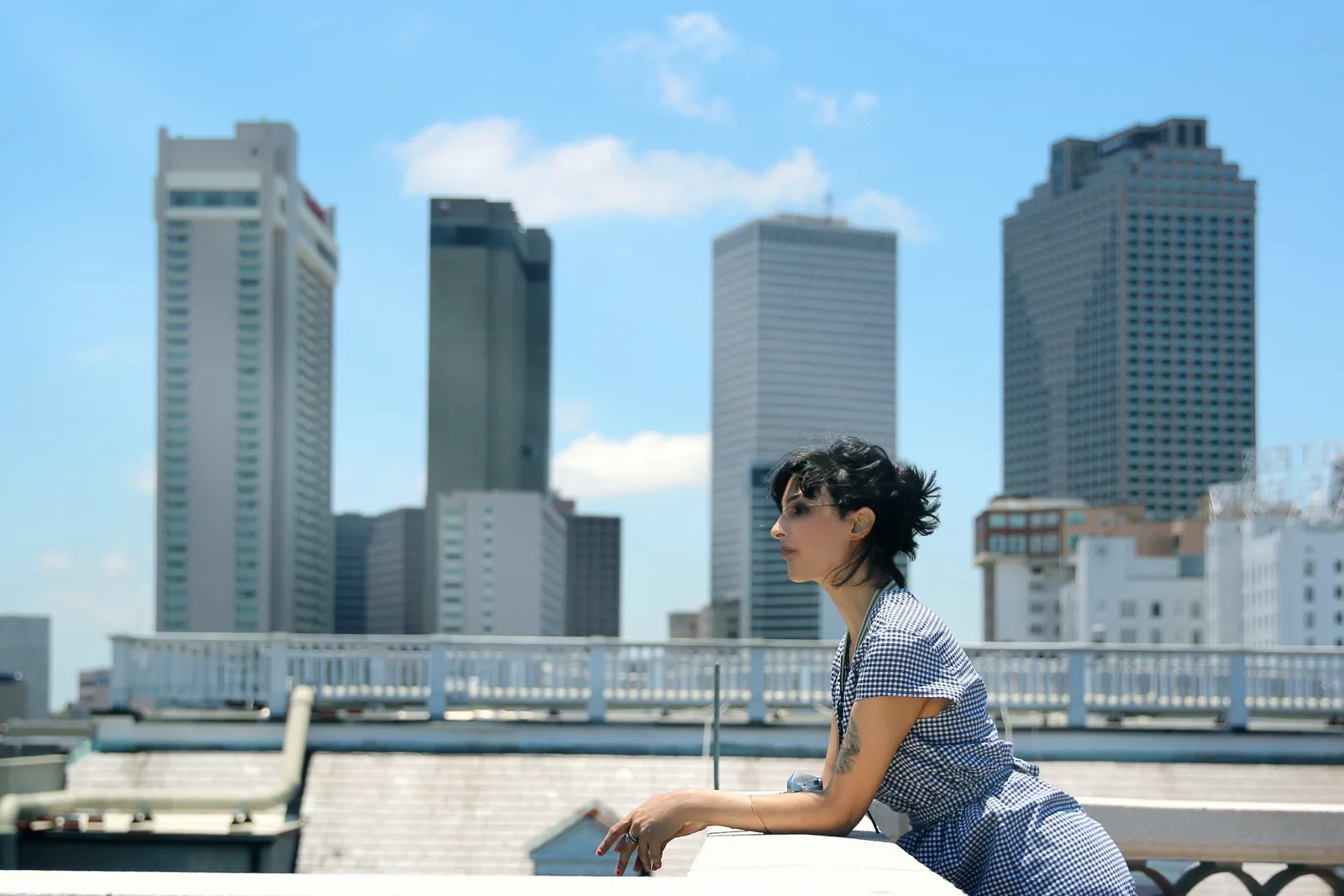
Yes, tourists and Bourbon Street often go hand in hand. If you ask most outsiders what they know about New Orleans, the number one answer is likely to be "Bourbon Street." It's a bucket-list destination, and many come to town just to experience it. As the saying goes, nothing in life is certain, except death, taxes, and tourists on Bourbon Street. But what do tourists really think of this liquor-laden thoroughfare?
The general consensus seems to be that Bourbon Street does not smell like a field of poppies after a spring rain, to put it delicately, and that the crowds have a combined blood-alcohol level equal to the population of Metairie.
"The first time I stepped on Bourbon Street, a stumbling lush almost knocked me down the moment I came around the corner," Mike Wells of Brooklyn, New York, said.
"The draw of New Orleans was Bourbon Street, but then I got down there and I realized that Bourbon Street was probably about the last place that I wanted to end up, and, if I did, it meant that I had partied way too long and I should be going to bed," Scott Moore of Ooltewah, Tennessee, said. "The sun comes up and the sweeper trucks come through, and you're like, 'I should be at home. There's no way that I should be down here in this. I must have done something wrong.'"
"Every other place you walk by is a strip club. It's just bar, karaoke, strip club. Bar, karaoke, strip club. Maybe some sort of country bar in there," Johanna Fredrickson, who is originally from Cortland, New York, said. "Don't look anyone in the eye when on Bourbon Street. Except for the strippers."
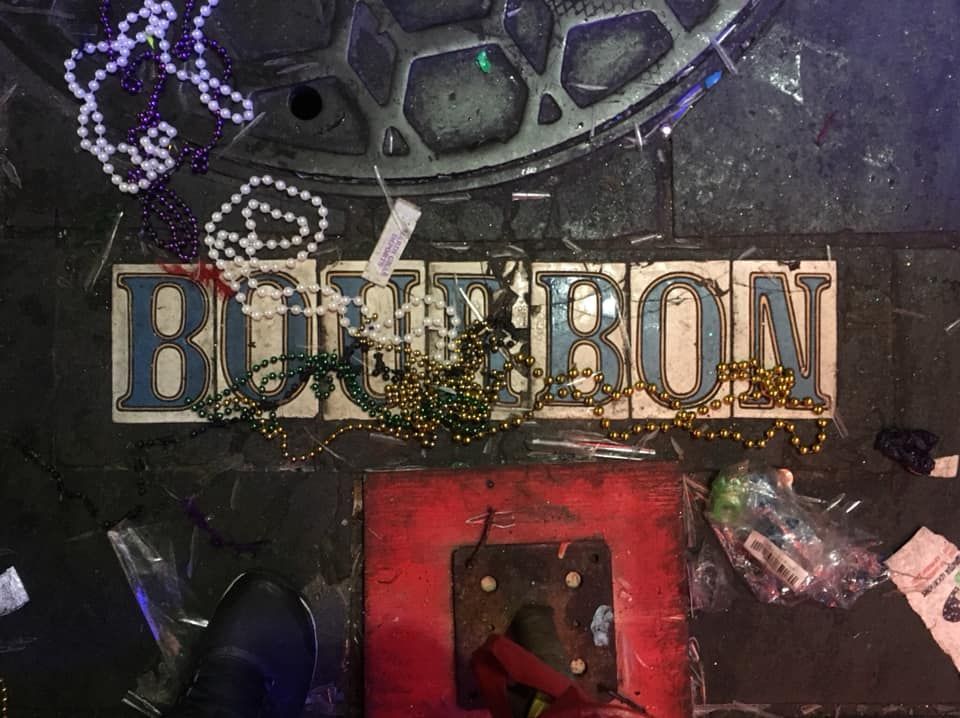
So, then, why do they come? Why do the tourists, bead-clad and daiquiri-carrying, flock to New Orleans's most world-famous, yet controversial, several blocks?
For some, it's the jazz music. It's the novelty factor. It's the camaraderie of strangers. Bourbon Street is a place that everyone is familiar with, even if they've never been. It's a spot that someone, somewhere, told them that they had to see, and they believed them. Bourbon Street is the best and the worst part of New Orleans. It's lost inhibitions and lost wallets, pizza joints and—well, just joints.
"Alcohol, people-watching, and a good time," Gioia Albi of Virginia said. "And Hand Grenades."
"Bourbon Street: a place of amazing music, mystery, mayhem, mischief, and more," Micki Sigmon of Allendale, Michigan, said.
"A bit disappointing in cosmetic appearance, but fabulous in ambience and cocktail selection," Susan Benson of Ft. Myers, Florida, said.
We're very nice.
Most visitors are struck by how friendly and welcoming we are—offering good ol' Southern hospitality by the go-cupful.
Edie Pischl of Stow, Ohio, says that New Orleans is the sort of place where the president of Tulane University gives out his personal cell phone number to students, just in case they need anything. She saw it firsthand when she brought her son there his freshman year.
Fredrickson added that people are so friendly that they'll yell at you from across the street just to say hello. "My mom knows everyone who works at the Walmart, and they all know her," she said. "She was gone from New Orleans for like four or five years and then came back and went to Walmart, and everyone still knew her name."
We sure know how to eat.
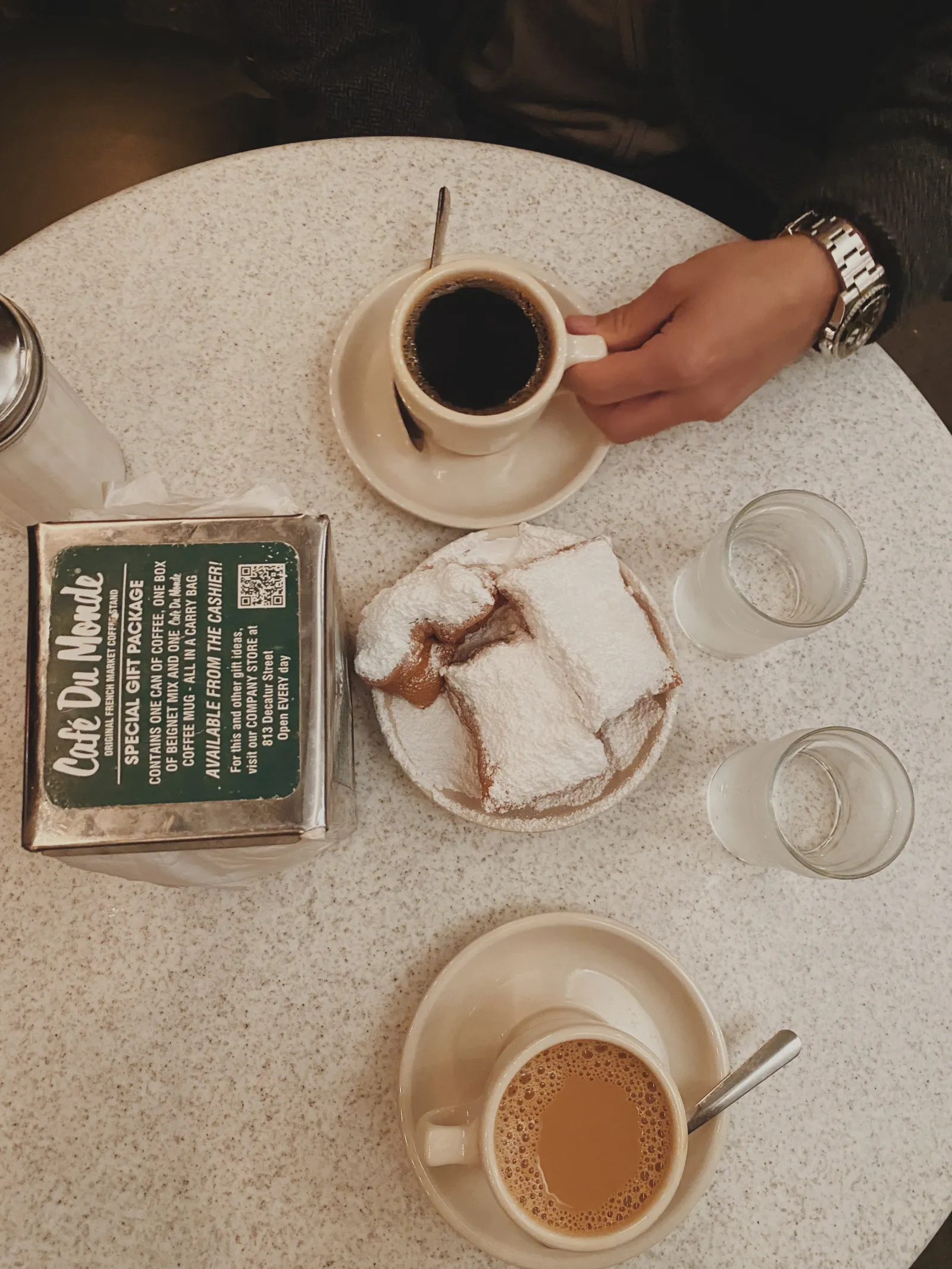
World-renowned for our cooking, New Orleans is a foodie's haven. Countless people come to New Orleans with the express purpose of gorging themselves on our fine cuisine, usually with a checklist of places to eat (Brennan's, Commander's Palace, Jacques-Imo's, Café du Monde) and foods to try (gumbo, beignets, grits, pralines, po-boys…). In fact, outsiders sometimes have a very narrow impression of just what our diets consist of here.
"Jambalaya!" Francois Marin said, who's from Normandy, France, and has never been to New Orleans but has heard gossip of its deliciousness and wants to come try it for himself. "But I can't tell you what else there is to eat there."
"I do think about the corn muffins I had there once. A lot," Hill said. "And one of my friends who was with me ate way too much fried chicken at Willie Mae's, but she had no regrets."
Yes, in much the same way that visitors tend to over-drink themselves, when it comes to food, they quite frequently bite off way more than they can chew.
"Our first time there, of course we had to try all the famous eateries. But I'm not used to eating all that heavy, rich stuff," Jennie Gentry from Chattanooga said. "Walking out of Commander's Palace, I remember being so stuffed that I looked over at the cemetery next door and thought, 'Man, I should be in there!'"
"You can always spot the tourists because they are covered with powdered sugar from their beignets," Terry Sykes of Michigan said.
Our city is old.
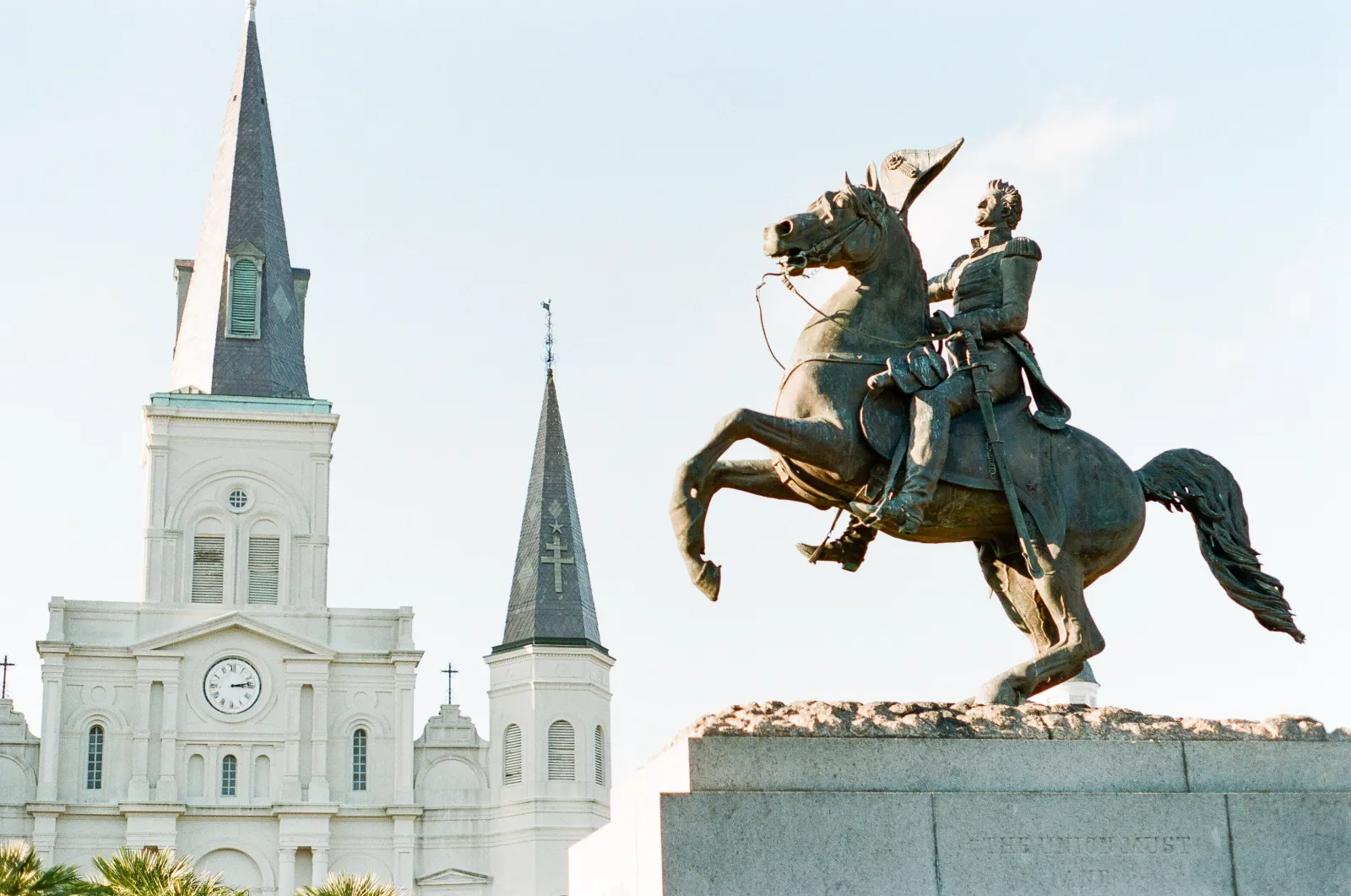
Another big draw for sightseers is our old-world charm. From the wrought iron fences to the 150-year-old houses, New Orleans architecture is its own tourist attraction.
"Walking the city, I found it a bit old and worn," Benson said. "But I loved the architecture and balconies that one always associates with NOLA. Loved the old mansions."
"I like the architecture and how they reappropriate the old buildings," Gentry said. "And I really liked the hotel lobbies."
We've got music and culture.
In pre-pandemic days, New Orleans would bring in throngs of music-loving tourists who came for the colorful culture, the countless festivals, and the vibrant live-entertainment scene. In 2019, for example, 475,000 turned out for Jazz Fest alone.
"I love New Orleans because of the music," Moore said. "There's live music on every corner, and you can walk up and hear it down alleys and streets. It's a city that's alive. It's got a real heartbeat."
"We loved all the street performers and stopped to watch each one," Pischl said. "They were truly amazing."
"There's so much art," Moore added. "Cool art and just artistic people."
Sometimes, however, outsiders' perspectives might be a little off-base:
"Arriving in NOLA, I was surprised to see a regular city," Benson said. "I'm not sure what I was actually expecting."
"I was at the Cleveland airport one time when a plane returning from New Orleans was arriving after Mardi Gras," Grace Kozak from Silver Lake, Ohio, said. "The men got off wearing horns and the women, beads. So now I always think of NOLA as a party city full of men in horns and women in beads."
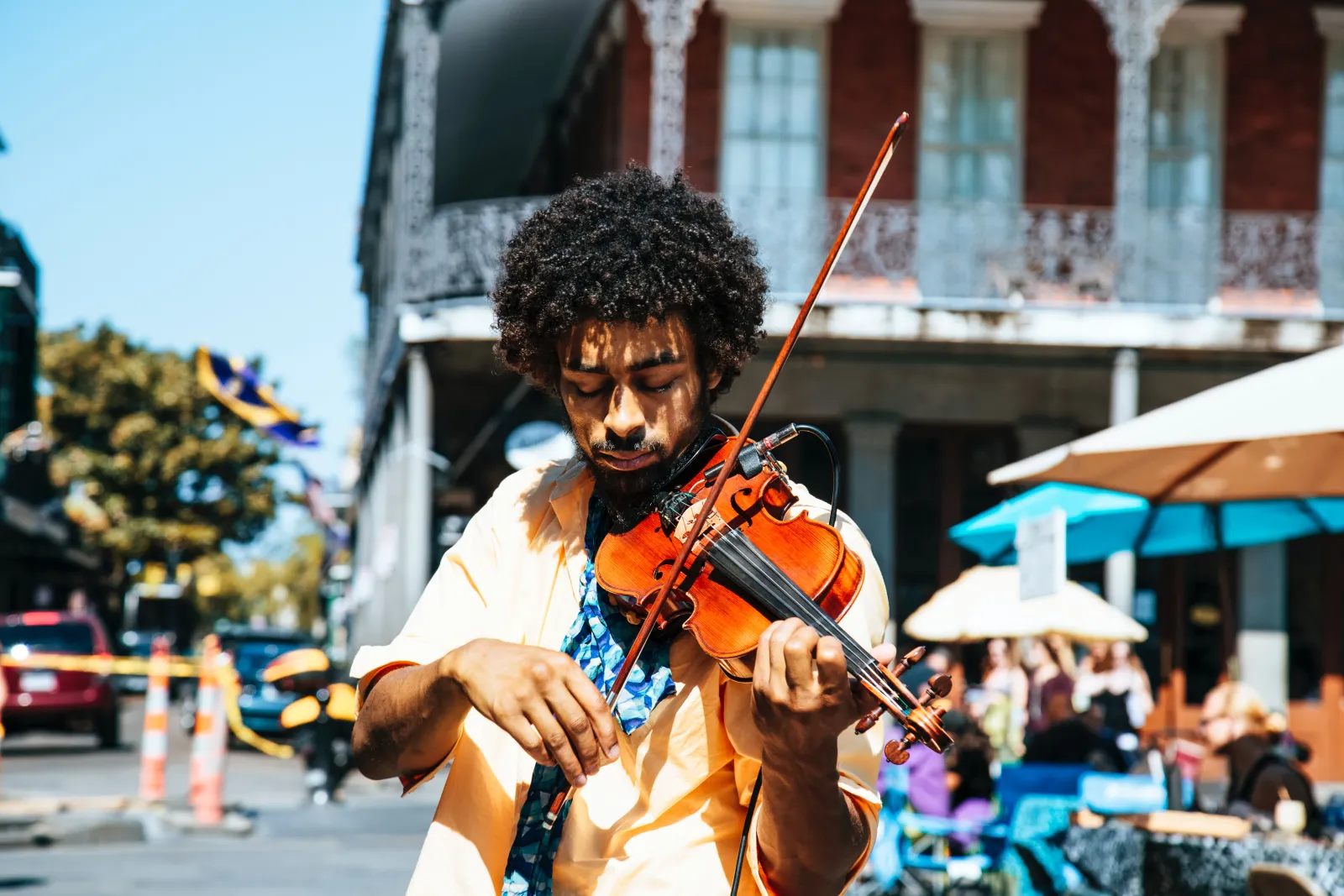
"Where can I get a sugar-free frozen daiquiri?" Sykes asked.
"I've always heard that people in New Orleans don't wear clothing," Kozak added.
But the majority of people know better. New Orleans is such a well-known place that, usually, even those who have never been here still have a clue about it. And they come here to see if the rumors are true.
Lauren Sawczyn, who is just 14, and her 12-year-old sister Macy from Ft. Myers are getting ready for their first trip to the Big Easy. When asked what she expects, Lauren responded, "When I'm in New Orleans, I expect to see a lot of jazz music and really cool architecture on old buildings. People say that there's really good food and restaurants, so I'm excited to see if that's true."
Marin learned about Louisiana through old documentaries in France. But he still has unanswered questions and wants to come visit to satisfy his curiosity. "What do all those men do in those bayous? Are they hunting alligators? Fishing for crawfish? I don't even really understand what a bayou is. We don't have bayous in France!"
Whatever it is that people have heard about New Orleans and for whatever reason they come, they are rarely disappointed. New Orleans meets their expectations, and, almost across the board, people find something to love here.
"I found parks and festivals and places to listen to jazz and places to get frozen Irish coffee. It was a constant source of surprises," Sykes said.
"It definitely lived up to the hype and probably surpassed it in a lot of ways," Moore said. "You can get lost down there. The place is a fairy tale. It's a fantasy. And fun."
"I love New Orleans, and it is a crazy place," Cannon agreed.

